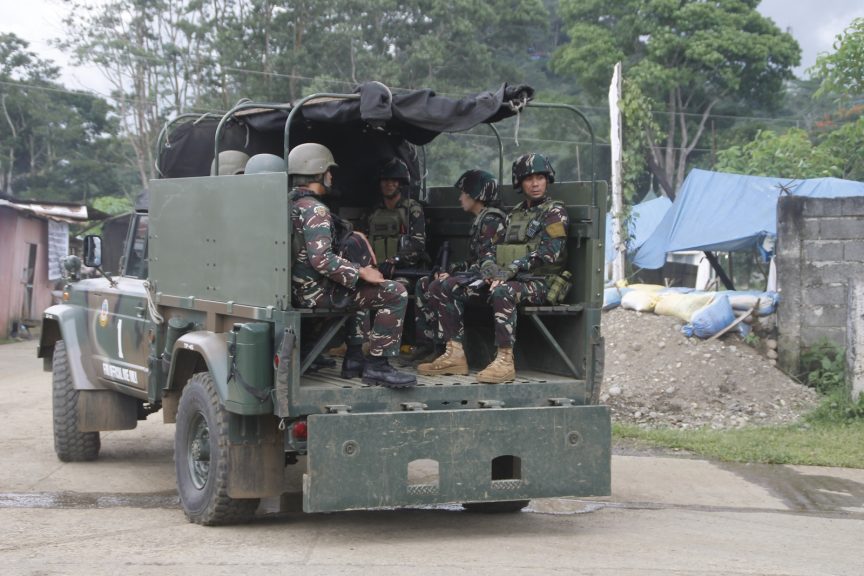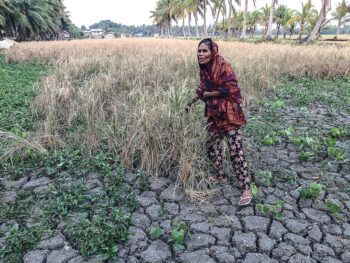DAVAO CITY (MindaNews/23 June) – Relations between the Philippines and its two neighbors, Indonesia and Malaysia, will enhance security patrol in the “porous southern backdoor” of the country that has remained vulnerable to international terrorists, a Palace official said.
During the Mindanao Hour on Friday at the Lispher Inn, presidential spokesperson Ernesto Abella said three member countries of the Association of Southeast Asian Nations are “making a collective effort” against terrorism and extremism.
He said the three countries convened in Manila on Thursday to discuss enhancing cooperation to address the common threats of terrorism and violent extremism confronting the region.
He said the trilateral relations will boost efforts in thwarting any attempts of establishing terrorist bases in Southeast Asia.
“Yesterday, the foreign military intelligence officials from the Philippines, Indonesia, Malaysia, had a fruitful and productive discussion on the trilateral cooperation aimed at preventing extremists and terrorists from establishing operational bases in Southeast Asia,” he said.
He said the three countries have agreed to work together in developing and implementing counterterrorism measures and strategies in the region.
“Let us underline that their joint aim, the end game is to prevent the establishment of operational bases in South East Asia,” he said.
“40 foreign terrorists”
Gen. Gilbert Gapay, martial law spokesperson for the Eastern Mindanao Command, said they have received reports that 40 foreign terrorists, mostly Malaysians, Indonesians, Arabs and Pakistanis, have entered the country.
He said there is a need to impose tighter immigration policies as he acknowledged the possibility that the foreign terrorists could have entered not only through the backdoor but also through seaports and airports.
“We have to tighten and enhance our security measures, as far as immigration is concerned. But on the part of the military and the security sector, there is really a need to enhance security of our southern backdoor, which is very porous we need to enhance intensify maritime patrols,” he said.
He called the trilateral agreement with Malaysia and Indonesia a welcome development.
“With Malaysia, Indonesia assisting us, the joint patrol will really enhance the armed forces in the south,” he said.
 Army soldiers from the battle front in downtown Marawi City enter the 103rd Infantry Brigade beside the Lanao del Sur provincial capitol complex on 23 June 2017. Government soldiers and the ISIS-inspired Maute Group have been fighting for control of the city since May 23. MindaNews photo by H. Marcos C. Mordeno
Army soldiers from the battle front in downtown Marawi City enter the 103rd Infantry Brigade beside the Lanao del Sur provincial capitol complex on 23 June 2017. Government soldiers and the ISIS-inspired Maute Group have been fighting for control of the city since May 23. MindaNews photo by H. Marcos C. Mordeno
He said the collaboration will help in the exchange of information and tracking of foreign terrorists.
On June 22, top foreign and security officials of the Philippines, Malaysia, and Indonesia came out with a joint statement on security, reaffirming their “commitment to effectively address existing as well as emerging transnational challenges and threats that have potential to undermine the stability and well-being of countries in the region.”
It said the ministers raised concern over recent incidents of terrorism and violent extremism in their countries and reaffirmed their desire to work together in developing and implementing counter-terrorism measures and strategies.
The ministers acknowledged that “proper development of strategies and cooperation in security and intelligence on a regional scale” are necessary to address transnational threats.
They agreed to task their senior officials and to consider the proposed Plan of Action, in the context of the following measures:
a.) enhance effort and cooperation in addressing the root causes and underlying conditions of extremism including but not limited to poverty, narcotics or illegal drugs, crime and social justice.
b.) Promote social and economic development particularly in adjoining areas of the three countries.
c.) enhance the intelligence and information sharing amongst all security and intelligence agencies on potential, imminent and real threats.
d.) stop the flow of terrorist financing.
e.) contain the spread of terrorism and terrorism-related content in the cyberspace, particularly in social media.
f.) prevent and suppress the terrorist exploitation of information and communication technology and the dissemination of terrorist messages.
g.) prevent and stop the flow of illicit arms and arms smuggling as we ass the movement of all terrorists.
h.) consider the provision of specialized military and law enforcement training.
i.)support the trilateral cooperative arrangement and other sub-regional efforts to combat transnational crime.
j.) review and implement all of our existing agreements on terrorism and violent extremism.
k.) make a cross-analysis comparison of each other’s laws on terrorism with a view to enhancing legislation.
l.) counter the extremist narrative through education, community engagement including the involvement of religious leaders and the promotion of tolerance, moderation and unity in diversity.
m.) explore initiatives to provide support for victims of terrorism.
n.) promote radicalization, rehabilitation and reintegration programs as part of comprehensive measures in countering terrorism.
o.) protect and safeguard vulnerable groups, particularly women, children and the youth, from the influence of terrorism. (Antonio L. Colina IV/MindaNews)
